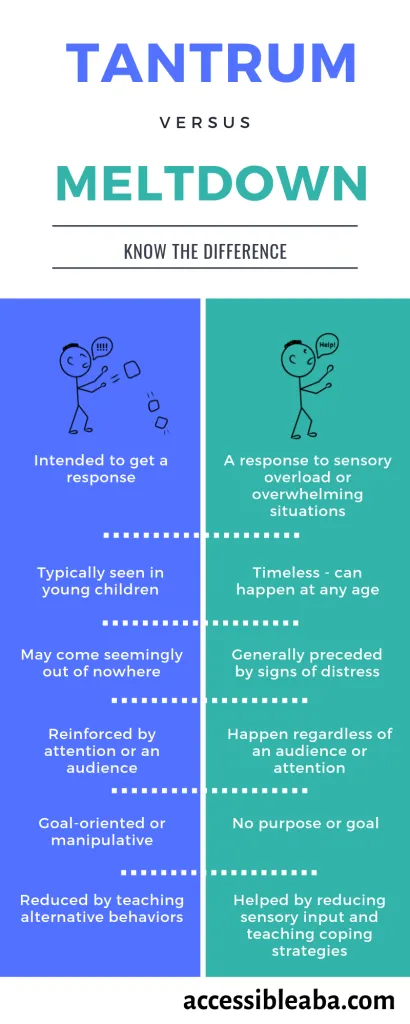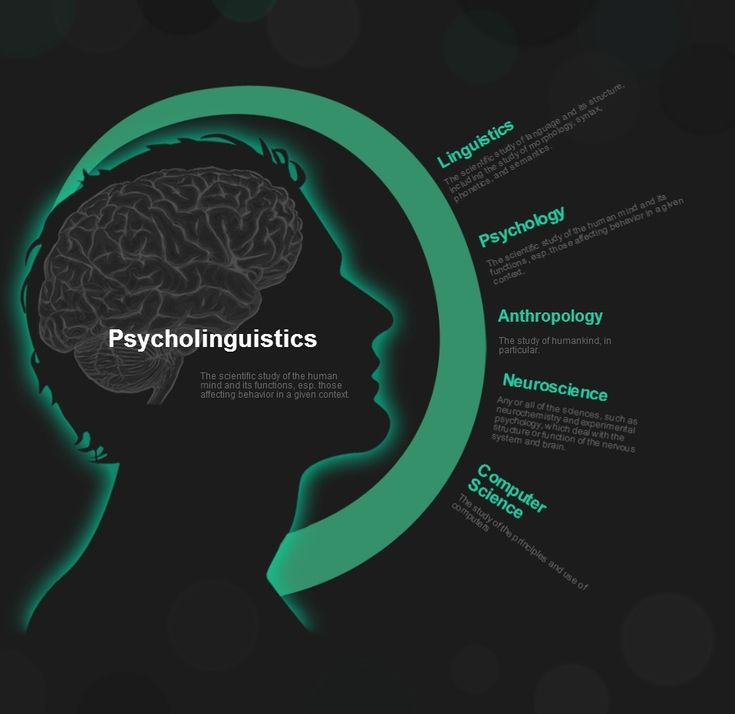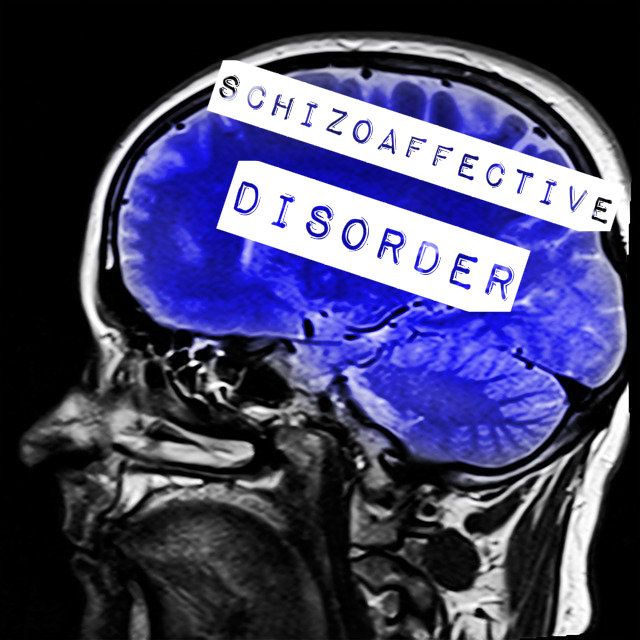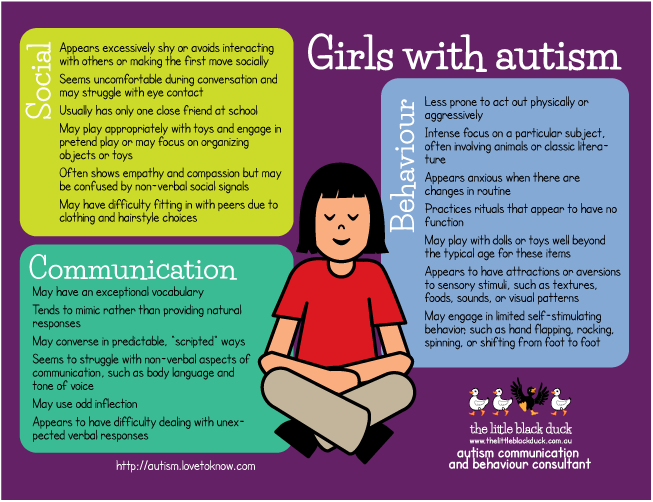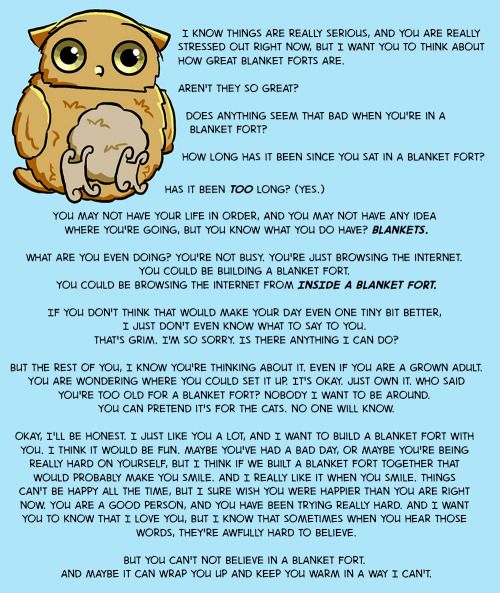Autistic meltdown vs tantrum
Tantrum vs Autistic Meltdown: What Is The Difference?
We’re here for you during COVID-19, providing information and resources like we always have for the past 18 years. Let us know how we can help.
Blog
Maureen Bennie
February 2, 2016
Many parents and caregivers have witnessed the fireworks of anger and emotion from a person with autism, and from the outside they look exactly like the tantrums of young children. While they may look similar in external behaviour, it’s important to understand the difference between the two. A tantrum is willful behaviour in younger children and therefore can be shaped by rewarding desired behaviours, whereas a meltdown can occur across a lifespan and isn’t impacted by a rewards system. Tantrums slowly go away as a child grows up, but meltdowns may never go away. Of course children with autism can also have classic temper tantrums, but understanding the difference is important because tantrums need one kind of response, but that same response will only make things worse for a person have an autistic meltdown from being overwhelmed by sensory stimuli.
How can you tell an autistic meltdown from a tantrum?
1)Goal oriented vs overload. A tantrum in a young child typically stems from frustration from not getting what they want in that moment: wether it is a toy, being able to button up their own shirts, or not wanting to go to bed . While tantrums in young children can be more frequent when they are tired, hungry or not feeling well, they are always goal oriented. Either the frustration at not getting what they want, not being able to do what they want, or even not being able to communicate what they want properly. An autistic meltdown on the other hand is all about being overwhelmed. For someone with autism, when they reach the point of sensory, emotional, and information overload, or even just too much unpredictability, it can trigger a variety of external behaviours that are similar to a tantrum (such as crying, yelling, or lashing out), or it can trigger a complete shutdown and withdrawal.
2)Tantrums need an audience. Tantrum behaviour will usually stop when the parent ignores the behaviour, when the child is removed from a public space where the behaviour is occurring, or when the child gets whatever it is they want (although this is not necessarily the best way to deal with tantrums). An autistic meltdown will occur with or without an audience. They can occur when the person with autism is entirely alone. They are the response of an external stimulus overload that leads to an emotional explosion (or implosion).
Tantrum behaviour will usually stop when the parent ignores the behaviour, when the child is removed from a public space where the behaviour is occurring, or when the child gets whatever it is they want (although this is not necessarily the best way to deal with tantrums). An autistic meltdown will occur with or without an audience. They can occur when the person with autism is entirely alone. They are the response of an external stimulus overload that leads to an emotional explosion (or implosion).
3)To put it simply: tantrums are an angry or frustrated outburst, while autistic meltdowns are a reaction to being overwhelmed. A person with autism has no control over their meltdowns, and will not benefit from the normal measures to reduce tantrums like distraction, hugs, incentives to ‘behave’, or any form of discipline.
What Can I Do To Help A Person Having An Autistic Meltdown?
As Judy Endow says in her wonderful blog post on the topic:
[Since an] autistic meltdown is the body’s attempt to gain equilibrium by expending energy, safety concerns often loom large.
In fact, safety becomes the focus of attention during the autistic meltdown. The goal for the support person at the height of a meltdown is to ensure safety, knowing the meltdown will continue until the energy is spent. There is no stopping a meltdown in progress.
1)Ensure safety. Individuals with autism may unintentionally hurt themselves or others during their meltdowns. Have a strategy in place to keep the individual and yourself safe from harm. Personally, I love the unapologetically non-violent Low Arousal Approach, which in my opinion is one of the best strategies available for coping with meltdowns. [ Managing Family Meltdown]
2)Develop a calming routine. Having an effective calming routine in place for both children and adults is very helpful. Some people may still need help to calm themselves even after the energy from the meltdown is spent. This may include visuals, or music…whatever works best. A great book that I found for this is When My Worries Get Too Big by Kari Dunn Buron.
3)Mapping the pattern of behaviour in your child or ward to see how escalation occurs can be very helpful. It may be possible to start a calming routine before total meltdown if you are aware of the symptoms of escalation. Symptoms can include more than normal stimming, or rocking, asking to leave an environment, or simply bolting to escape etc… If you understand what triggers your child, student, or ward you may be able to stop a meltdown before it happens. An excellent resource for this is No More Meltdowns by Jed. E. Baker.
4)Stay calm yourself. This is a big one – meltdowns normally have trackable escalation, so keeping yourself calm so that you don’t add to that escalation is essential. If you have a person with autism in your life, chances are meltdowns are going to happen. Learning to calmly cope with them and having a strategy that works for you is the best way to help. From Anxiety to Meltdown by Deborah Lipsky is a fantastic resource.
Tags: meltdowns, tantrums.
Editorial Policy: Autism Awareness Centre believes that education is the key to success in assisting individuals who have autism and related disorders. Autism Awareness Centre’s mission is to ensure our extensive autism resource selection features the newest titles available in North America. Note that the information contained on this web site should not be used as a substitute for medical care and advice.
Read Our Full Editorial Policy
Did you enjoy this post?
Please share it with your friends on your favourite social network.
About the author:
Maureen Bennie
Maureen Bennie created the Autism Awareness Centre in 2003 to address what she saw as a gap in support and advocacy for those struggling with autism and autism spectrum disorders. For Maureen, education brings positive change to the lives of those affected by autism and autism spectrum disorders.
Click to Read Maureen's Full Biography
Tantrum vs Autistic Meltdown: What is the difference? How to deal with them?
Tantrums and autistic meltdowns may look similar at the surface. They both can represent with screaming and crying, kicking, hitting, and breath holding. There are several points that can help us to differentiate meltdowns from tantrums. However, often the most important way to identify them relies on the parent’s experience. The parents know their children the best and over the time, often they are quick to discriminate meltdowns by experience.
Next, we go through 3 main points that can help to identify tantrum vs autistic meltdown:
1. Pay attention to the underlying situation and what has happened before the behavior:
A tantrum is a goal-oriented action, so there is always an unmet request before the tantrum. The child may be asking for a sweet or a toy, want to play games or not to leave the playground. Tantrums may happen in any situation if the child is tired or hungry or bored, but at any situation there is goal for the tantrum!
Tantrums may happen in any situation if the child is tired or hungry or bored, but at any situation there is goal for the tantrum!
An autistic meltdown, however, is not related to a specific goal but rather caused by too much overload. It shows that the child is not able to handle the situation. There may be too much sensory stimuli in the environment, too much information, or the child just feels too much pressure from unpredictable situations and getting out of their routines.
Opposite to meltdowns, tantrums start quite rapidly and without a warning signal. The only clue that may help is having the child’s request denied. Often after a while, parents can identify these signals and predict that a meltdown is going to happen soon. Paying attention to these signals can be very helpful to remove the child from the overstimulating environment before it’s too late.
2. There are often signs of distress before a meltdown:
Autistic meltdowns often start with some warning signals. These signals can be very obvious or subtle. Based on the stimuli that is causing the sensory overload, children may cover their eyes or ears. Their body may become tense and they may try to move their body and hands as a self-suiting mechanism to reduce the distress.
These signals can be very obvious or subtle. Based on the stimuli that is causing the sensory overload, children may cover their eyes or ears. Their body may become tense and they may try to move their body and hands as a self-suiting mechanism to reduce the distress.
Stimming is a self-stimulatory behavior such as rocking, pacing, or finger flicking. Many autistic children and adults use stimming as a self-calming technique. When you see an autistic child or adult who is flapping hands or rocking back and forth intensely, there is a good chance that they are feeling anxious and are under stress. Many meltdowns start after a short period of intense stimming. By paying attention to a child stimming, parents can be warned about a potential source of overstimulation.
It is important to mention that stimming is not always caused by distress. It can also be a natural response to excitement and happiness in a child with autism. In many cases, based on the experience, parents can differentiate a happy stimming from a nervous stimming.
Signs indicating that an autistic child is going to have a meltdown
3. Is there an audience for the child’s behavior or not?
Tantrum is a way for children to get the attention of their parents and adults and to lead them to do something that the child wants. Therefore, tantrums always happen when there is an audience.
For example, if the child is alone or not with parents or direct caregivers, they would not have a tantrum.
Autistic meltdown, however, is not an act to attract attention and reach a goal. Therefore, they can happen in any situation and especially more often when children are away from their parents and they are dealing with new people and new situations. Based on the type of sensory sensitivity one individual may have, they can happen in various environments and they are not necessary coming after a request is denied.
11 Causes of "Tantrums" in Autism • Autism is
Many people on the autism spectrum experience nervous breakdowns ("tantrums"). This is a normal reaction to overload in an environment that is too difficult for a person and does not meet the needs of neurodivergent people. It is important to understand what exactly caused the crisis reaction, for example, it could be overstimulation or a difficult social situation. We talked to various autistic people about what can trigger a nervous breakdown in them. The better we understand our neurodivergent friends and loved ones, the better we can support them in times of need.
This is a normal reaction to overload in an environment that is too difficult for a person and does not meet the needs of neurodivergent people. It is important to understand what exactly caused the crisis reaction, for example, it could be overstimulation or a difficult social situation. We talked to various autistic people about what can trigger a nervous breakdown in them. The better we understand our neurodivergent friends and loved ones, the better we can support them in times of need.
Here are some of the reasons they shared with us.
1. Changes in daily routine
Although there are people who are prone to spontaneity, many people are more comfortable in familiar surroundings when they know what to expect. Of course, sometimes things don't go as planned, and that can be stressful. For autistic people, however, routine changes are many times more difficult, and for some, they can cause a nervous breakdown.
“Changes in routine… Realize that the long commute completely disrupts my regulation and I need structure and routine.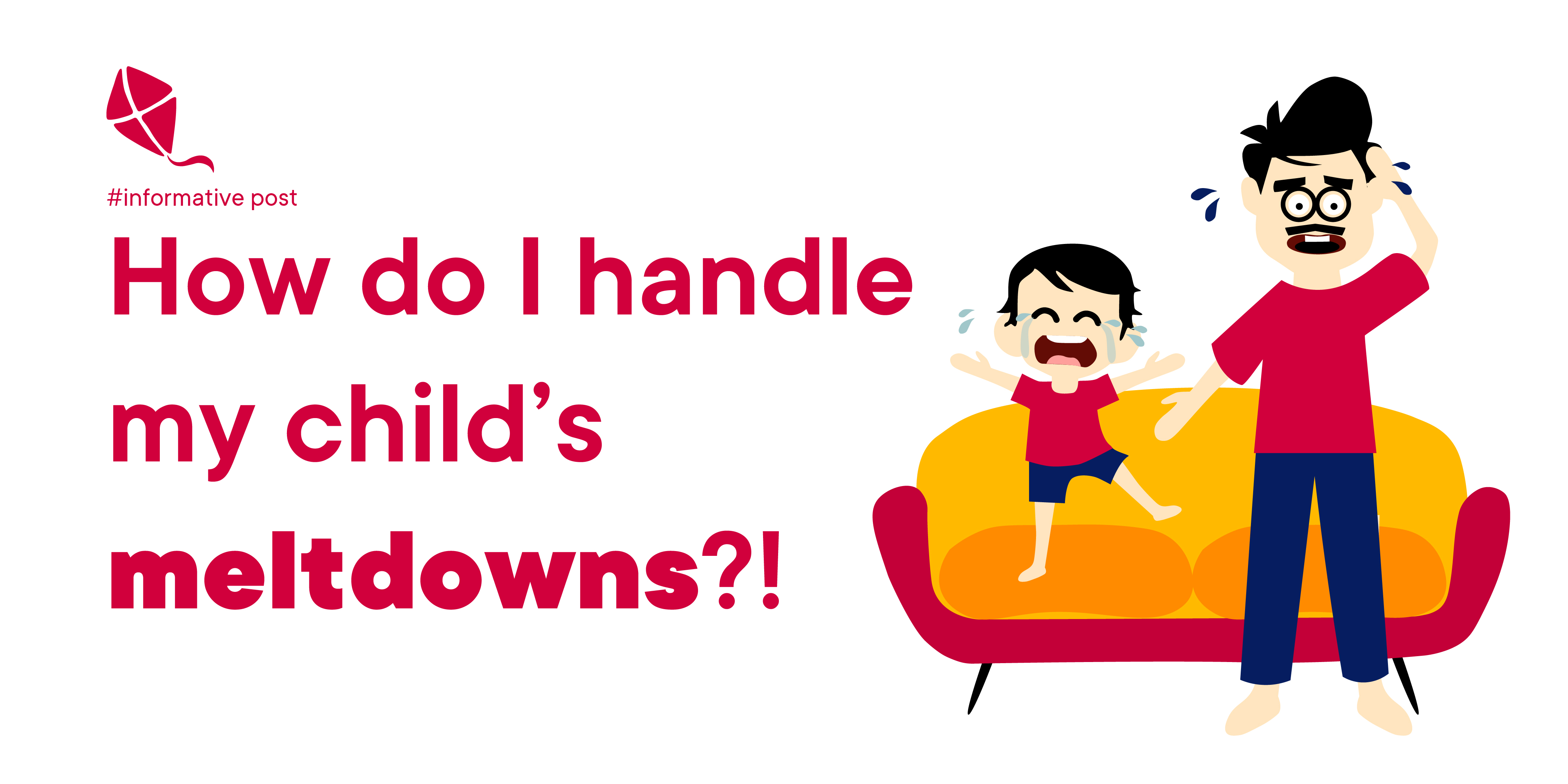 Do not be upset if I refuse an event for which you will need to go somewhere. And do not interfere in my routine without a good reason - I will not agree to this.
Do not be upset if I refuse an event for which you will need to go somewhere. And do not interfere in my routine without a good reason - I will not agree to this.
"When things don't go the way I planned."
“Mostly it's just a change in my schedule or just something unexpected happened. New places, for example, the first arrival in a new city or another place, conversations with strangers - to the point that I cannot order food at McDonald's. Or when other people put pressure on me."
2. Sounds or noise that are too loud
Sensory hypersensitivity is common in people on the autism spectrum: an overload of information from the senses causes overload. Although hypersensitivity may relate to sight, smell, taste, or touch, negative reactions to loud sounds and noisy places are especially common. Most often, overload is associated with noisy, chaotic places where there are a lot of people around.
"Noise, too many people around, that's probably the worst thing for me. "
"
"If we talk about any reason, it could be any loud noise or something that scared me."
“Any loud noise or strange smell, or if I get too emotional. I have PECS cards and an emotion board in case I have a nervous breakdown, because then I lose the ability to speak.
"Too many people, too loud, too much fuss, too much noise."
3. New environment overload
New environment can trigger a nervous breakdown due to various factors. It could be a change in routine, a lot of new people, increased anxiety, and the need to connect with new people who may not understand neurodiversity. So it's not surprising when many autistic people say that a new environment can trigger a nervous breakdown.
“When I don’t understand if I said something offensive or not, or if the person who ran into me is just a jerk. Bullying has a very bad effect on me. Emotional / mental overload in a new environment, when I try to cope with it, but at the same time not show that it is difficult for me.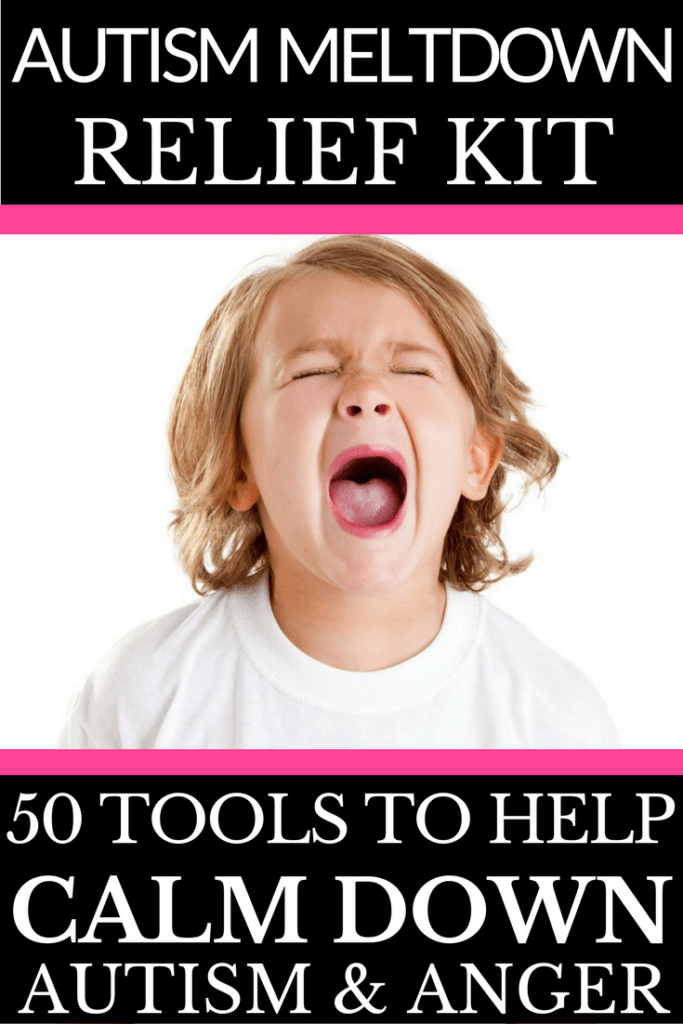 Others can help if they think before they speak and watch their own prejudices.”
Others can help if they think before they speak and watch their own prejudices.”
4. Crowded places
Many public places are often crowded - shopping malls, train stations, restaurants, popular attractions, even theaters. The list can go on for a very long time. Places where a lot of people gather can cause extreme overload of different senses, and crowded places can provoke a nervous breakdown. It can help if you go to a quiet, not so crowded place.
“Now that I'm an adult, I'm less likely to have breakdowns because I've figured out what triggers a nervous breakdown. I used to have them very often. Places with a lot of people, supermarkets, weddings, clubs still make me nervous: too much noise and so on. To calm down, I take breaks for 10-15 minutes, I just go to a quiet place.”
“I often have nervous breakdowns when someone screams. Doesn't necessarily yell at me, but I don't understand why. Or when I lose my temper because I need to complete some task and I can't ask for help. In some cases, I have nervous breakdowns when I need to make a presentation in front of strangers or just in front of a large group of people.
In some cases, I have nervous breakdowns when I need to make a presentation in front of strangers or just in front of a large group of people.
5. Unmet Basic Needs
It's hard to keep your composure when you're in dire need of food, water, or sleep. Unmet basic needs multiply stress and fatigue, and you are more vulnerable to the stimuli of the outside world. Nervous breakdowns are highly likely to occur during such periods.
“Nervous breakdowns are caused by fatigue, lack of food (I have to snack every couple of hours), dehydration when there is too much contact with people, and so on. For the prevention of breakdowns, the main thing is balance: eight hours of good sleep, healthy protein food, water, peace and quiet.
6. When you are not understood
Most NT people do not know how to interact with autistic people during a conversation (and, in general, in any other circumstances). Very often it turns out that those around you do not understand and do not try, and this always drives you crazy.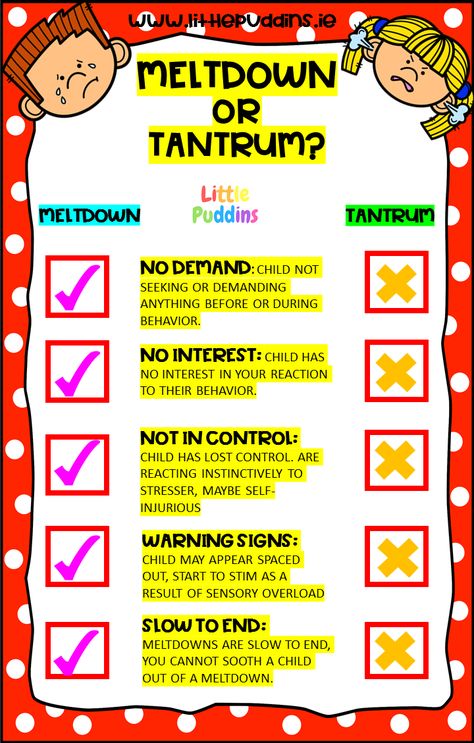 When you are not well understood or you are in a situation that does not suit you in principle, for example, you need to complete a task that requires a lot of social interaction, this causes extreme stress and can lead to a nervous breakdown.
When you are not well understood or you are in a situation that does not suit you in principle, for example, you need to complete a task that requires a lot of social interaction, this causes extreme stress and can lead to a nervous breakdown.
“Because I was ridiculously straightforward, I was appointed to the position of head of discipline in a 600-student high school. One can imagine that in this situation, nervous breakdowns were inevitable, mainly due to the amount of social contact that I had every day. I'm also hyper-intellectual, so it's not uncommon for me to be the first to notice something, so to speak. I often understand something that others do not understand, and I just wait for them to come to the same conclusion as I do, and if this does not happen, then I experience great anxiety.
7. Sensory overload
Hypersensitivity to what's going on in the world around you is a classic feature in autism, and if the senses are overloaded or overstimulated, it can lead to a nervous breakdown.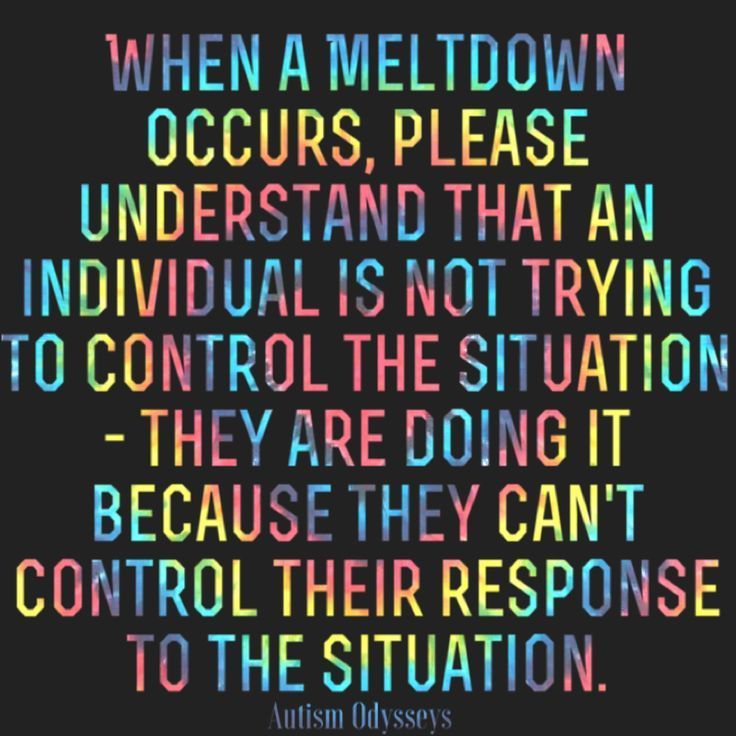 Overstimulation can be associated with lighting, noise, crowded places, and in principle situations where a lot is happening at the same time. It is because of sensory overload that many public places, such as zoos or theaters, have recently created so-called sensory unloading rooms.
Overstimulation can be associated with lighting, noise, crowded places, and in principle situations where a lot is happening at the same time. It is because of sensory overload that many public places, such as zoos or theaters, have recently created so-called sensory unloading rooms.
“Too much light. Too many people in the room. Too many stupid talk about nothing. Too much noise, including some types of pop music. I just can't take it."
"Definitely overstimulated!"
“Reasons? If too much is happening at once, feeling unwell, sensory overload, when you don't have enough time, some kind of emergency, when everything goes wrong, or when I was around people for too long.
8. Specific “small” causes
Sometimes the cause of a nervous breakdown can be related to what seems like a small thing to all other people, and this is a very specific factor for a particular person. Maybe it's a small change in the daily routine, a missing word in a conversation, the taste of a particular vegetable, or one particular song on the radio.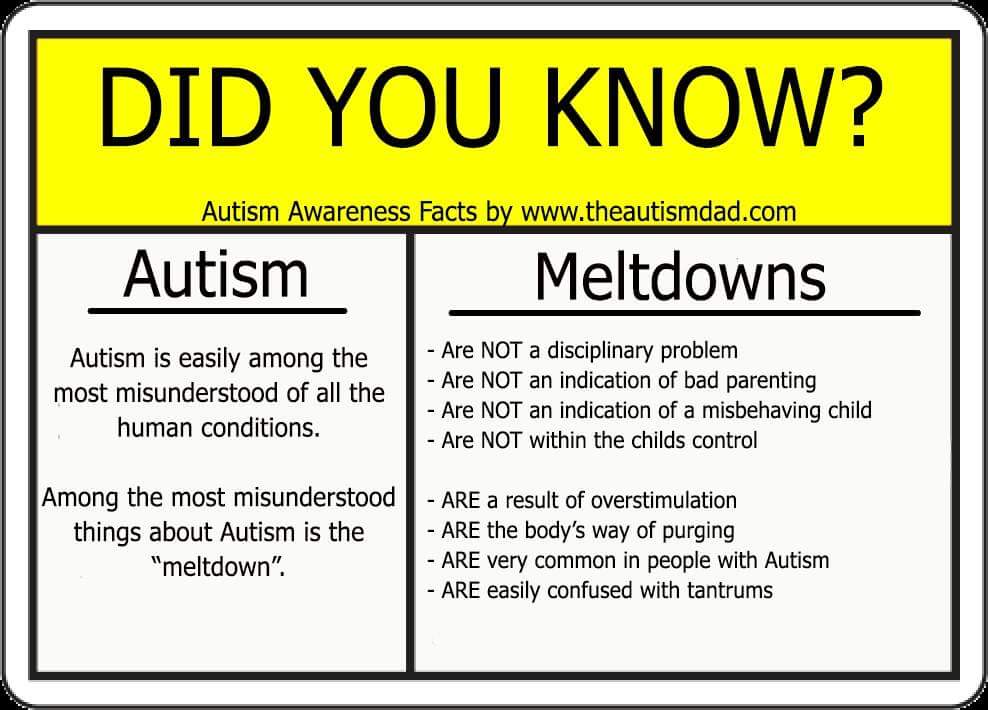 Although others may not even notice a "minor" cause, it can cause serious overload.
Although others may not even notice a "minor" cause, it can cause serious overload.
“For me, the reasons are very small. Small changes, for example, if I had to go in an unusual way. It may be some kind of misunderstanding, some kind of remark about me. A certain smell or tactile sensation, high-pitched sounds, inability to find the right object.
9. The feeling of losing control over what is happening
A stable daily routine, routine and predictability in life calm and console. But if things get out of control, become chaotic, then it causes anxiety, overstimulation and sensory overload, and can lead to a nervous breakdown. A sense of chaos can arise when several little things go wrong at the same time.
“What causes me extreme bodily discomfort and complete confusion of thoughts is screaming or when there are so many movements around that it is very loud. So if I go to some chaotic place, I just make a plan for three hours. If it gets too hard, then I leave for a while. And I carry a sensory bag with me and always drive only in my car.”
And I carry a sensory bag with me and always drive only in my car.”
"When too many unusual things happen at the same time and I lose faith that everything is okay."
10. Feeling trapped
Staying comfortable in the physical space is very important. If this feeling is lost for some reason, it can lead to a nervous breakdown. This may include being unable to leave a small space or being unable to stop a conversation with someone who is invading your personal space. Especially if the intrusion into your space makes you anxious.
“Mostly when I feel stuck. And if someone touches or just looms over me. It makes me anxious."
11. Unpleasant social situations
Social interaction itself can cause exhaustion, confusion and discomfort. For some people, certain types of social interaction lead directly to a nervous breakdown, especially if several people want something from you at the same time. Problematic situations may be due to the fact that you are often interrupted or the conversation changes too often.
“When people come up to me from all sides, for example at conferences, I just freeze, I start sweating and palpitations, my skin feels like it’s on fire, I’m ready to cry, but in my thoughts I scream to myself not to be stupid and just leave . Friends say, ‘So just get out of the way,’ I don’t think they understand how much it hurts and that I can’t do it.”
“Usually for me it's a lot of people at the same time or when I'm interrupted all the time when I'm trying to talk to one or two people. And when the brain has to jump from topic to topic again and again, it shakes me, if not worse. I was really lucky with those who are close to me: some of them realized that I have ASD before I did myself!”
Autistic adults on what could help children during a "tantrum"
11/01/20
Ellen Stumbo
Source: The Mighty
Because I have two children with disabilities, some of my friends have different types of disabilities, or they also have children with disabilities.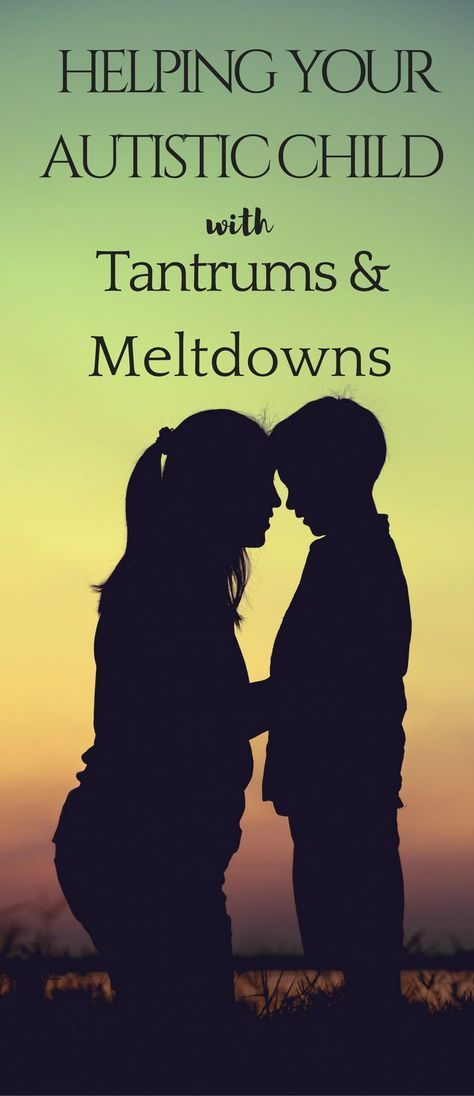 Nothing can replace the connection with other parents in a similar situation, but also, over time, I rely more and more on the recommendations of friends with experience of living with a disability.
Nothing can replace the connection with other parents in a similar situation, but also, over time, I rely more and more on the recommendations of friends with experience of living with a disability.
For example, one of my children has cerebral palsy and I turn to my friends with cerebral palsy for advice on how to help my daughter or how to talk about disability issues. I also have a good friend on the autism spectrum and he has been a resource for me in relation to autism. I believe that the personal experience of those who do live with a certain disability makes them experts. I learned a lot from them, and when I listened to their advice, it helped me become a better parent.
Not long ago I was listening to a conversation about autistic children and "tantrums". Parents discussed how best to help the child in such a situation. I had a question: “Has anyone asked an autistic person what helped him in childhood or now?” This situation again reminded me of the importance of listening to the voices of autistic adults with direct experience.
We ended up reaching out to the autism community, and I also reached out to my friend Carlyle, who runs an autism support group, and asked him to connect me with other autistic adults. We asked them the following questions: “As autistic adults, what advice would you give parents when it comes to having a nervous breakdown? What was helpful for you? What did you need?
Here are their answers:
1. “Please don't put your child in conditions that he cannot bear and then punish him for the behavior that followed. For example, do not take the child to where he is uncomfortable and demand that he behaves “normally”. The child is trying to communicate with you. Anger, discomfort, irritation, pain - the child wants to draw your attention to this and get help, there is no need to punish him for this. It is likely that a combination of factors caused the child's reaction, and he needs help understanding and expressing his emotions, as well as adjusting stimulation from the external environment. It is best to allow the child to rest in a cool, dark and quiet place (or otherwise reduce stimulation from the outside environment, such as with headphones, dark glasses, etc.).
It is best to allow the child to rest in a cool, dark and quiet place (or otherwise reduce stimulation from the outside environment, such as with headphones, dark glasses, etc.).
Make sure the child is safe and does not pose a threat to himself or others and allow him to process what happened. When he is ready for this, discuss with him what happened, calmly and rationally. After that, you can come up with some solutions together so that next time you can prevent this in a similar situation. And do not forbid the child to “stim”. It's a useful mechanism for us to help us deal with a difficult situation.” – Vanessa B.
2. “Try to analyze exactly what happened before the breakdown. Has the situation caused too much overload? What happened before the breakdown? What happened during the most nervous breakdown? This is the best way to understand how to help and what is needed to prevent such cases. And be sure to practice how to act in such situations! Prevention does not give full guarantees, so practice of actions in such situations is necessary. If a nervous breakdown has occurred, then be calm, act as if nothing happened, nothing special, no "oh my God" and the like. Just allow what is already happening to happen, remain calm… If possible, move the person out of the situation to a quiet room or other place where the environment is calmer. Some people find it helpful to have a blanket or something to cover their head and/or body with. If you are in a place where a quiet place is not available, then stand directly in front of the child to fence him off with you, wait until the tantrum itself subsides. Stay calm, behave normally - it is important for a person during a nervous breakdown to see that you can be relied upon, this signals the brain that you can calm down, ”- Martina M.
If a nervous breakdown has occurred, then be calm, act as if nothing happened, nothing special, no "oh my God" and the like. Just allow what is already happening to happen, remain calm… If possible, move the person out of the situation to a quiet room or other place where the environment is calmer. Some people find it helpful to have a blanket or something to cover their head and/or body with. If you are in a place where a quiet place is not available, then stand directly in front of the child to fence him off with you, wait until the tantrum itself subsides. Stay calm, behave normally - it is important for a person during a nervous breakdown to see that you can be relied upon, this signals the brain that you can calm down, ”- Martina M.
3. “Try to leave a problem situation without waiting for a full-fledged nervous breakdown. What helps me personally is that if I feel like I'm going to snap, I try to go somewhere quieter as soon as possible.” – Ashley W.
4. “For me, there's a difference between 'sensory overload' and a nervous breakdown. In the first case, everything is more unpredictable, and it all depends on whether I can concentrate on any one subject. In the second case, I lose my temper, and everything happens quite predictably. But everything looks the same from the outside, although it feels different from the inside.” – Zachary D.
In the first case, everything is more unpredictable, and it all depends on whether I can concentrate on any one subject. In the second case, I lose my temper, and everything happens quite predictably. But everything looks the same from the outside, although it feels different from the inside.” – Zachary D.
5. “Don't tell children that they have to put up with unpleasant situations or that they ruin everything. We cannot control it. It's the same as if I tell you to stop hearing, or stop feeling pain, when your hand is pressed against a red-hot battery. They can't do anything about it, and chances are they already feel terrible or embarrassed about it! If they need to leave because something provokes such a reaction in them, if they need to be alone for a while, then please just let them do it. Perhaps they are already barely holding on, and if they "endure" any more, then this will lead to a big explosion, and, believe me, it will not end in anything good! Listen to them and let them avoid what causes them sensory overload.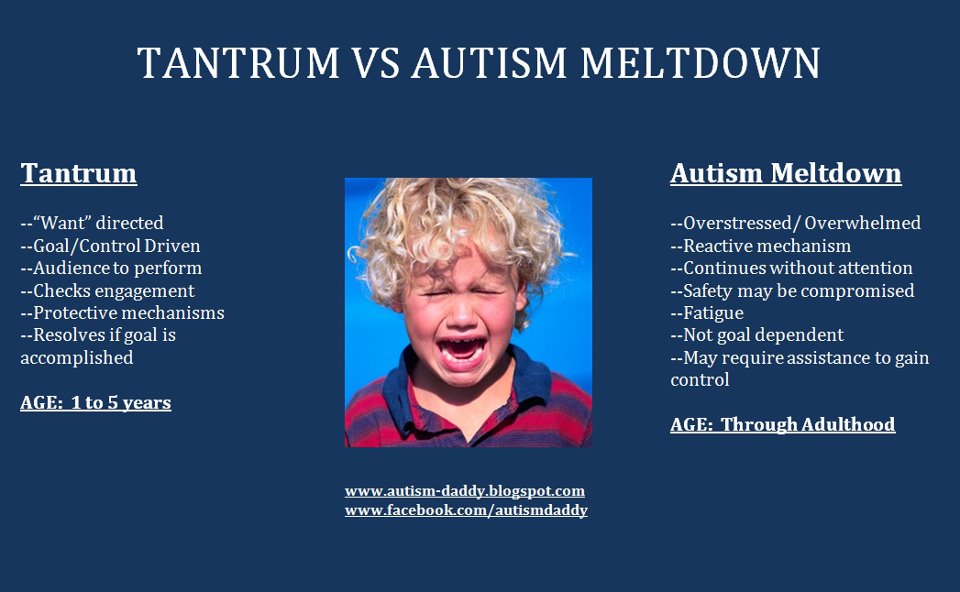 Think of people as plants. If a plant doesn't grow the way we want, we don't scream for it to grow differently - we change its environment, such as lighting, so that it has new opportunities for growth. It's the same with autistic people.” – Ruby V.
Think of people as plants. If a plant doesn't grow the way we want, we don't scream for it to grow differently - we change its environment, such as lighting, so that it has new opportunities for growth. It's the same with autistic people.” – Ruby V.
6. “Carry paper stickers to cover automatic sensors! It helps because it prevents the toilet from automatically flushing, it's like a superpower!" – Casey H.
7. “Many of my breakdowns were because I perceived my autism as something bad. Ask if the child would like to know more about autism and what it is. When I began to study this, I began to feel good about autism, not bad.” – Zachary D.
8. “Talking and threatening during a nervous breakdown does not help. My mom didn't know I was autistic and she spanked me and tried to punish me to stop the tantrum. Things only got worse, and my nervous breakdowns lasted for hours. This is not the same as whims, when a child wants to get something by screaming. We cannot control it.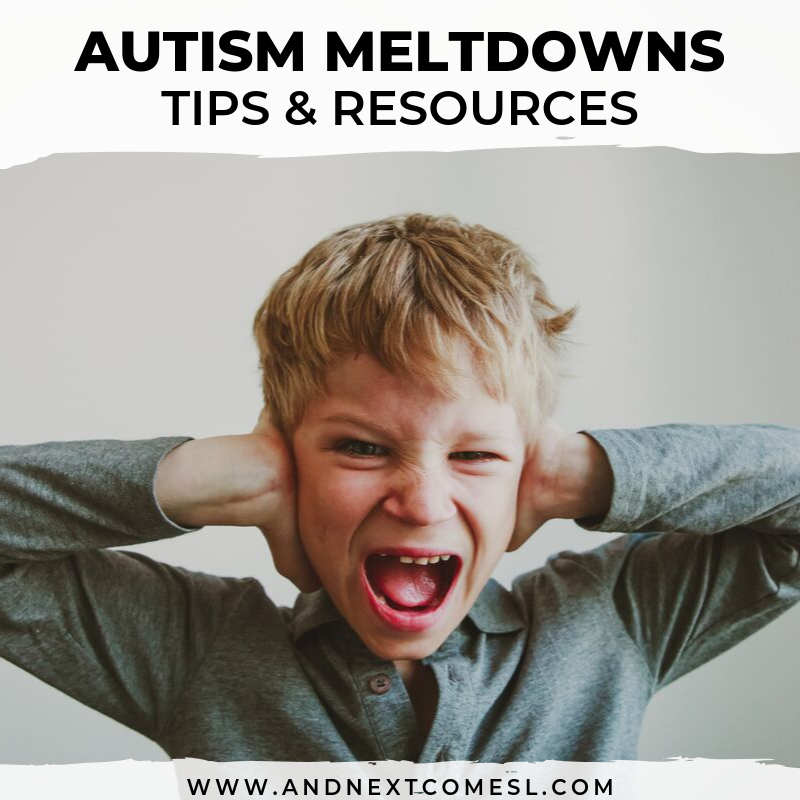 It will help if you just sit quietly and wait until we deal with this. Just don't say anything. Make sure we're safe, but let us handle it ourselves. You can't force us to stop a nervous breakdown. That will only hurt more. I don't think neurotypicals understand that we really hurt when we have a nervous breakdown. It is physical and emotional pain. When it's all over and we've already worked it out, then you can discuss with us what happened and what can be done to prevent it next time, which can help our body avoid escalation. Now that I'm an adult, my main recipe is a quiet place and a weighted blanket. Now I know what to look for to prevent a full-blown nervous breakdown, so I don't have them anymore. Rather, I can "disconnect" from what is happening around, or emotionally burn out. But this is my personal experience. All people are different. But this is what I myself needed as a child, and what I still need as an adult.” – Aime K.
It will help if you just sit quietly and wait until we deal with this. Just don't say anything. Make sure we're safe, but let us handle it ourselves. You can't force us to stop a nervous breakdown. That will only hurt more. I don't think neurotypicals understand that we really hurt when we have a nervous breakdown. It is physical and emotional pain. When it's all over and we've already worked it out, then you can discuss with us what happened and what can be done to prevent it next time, which can help our body avoid escalation. Now that I'm an adult, my main recipe is a quiet place and a weighted blanket. Now I know what to look for to prevent a full-blown nervous breakdown, so I don't have them anymore. Rather, I can "disconnect" from what is happening around, or emotionally burn out. But this is my personal experience. All people are different. But this is what I myself needed as a child, and what I still need as an adult.” – Aime K.
9. “Give the person a chance to take a break and calm down, find a place where there is no overstimulation, because overstimulation is the cause of a nervous breakdown.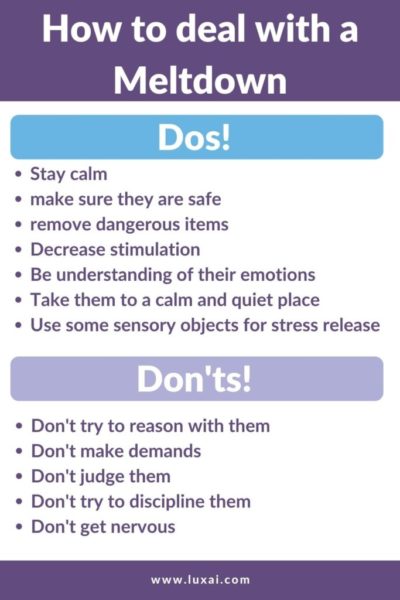 A person needs space and time to deal with it. It can be helpful to walk away and walk around to keep your balance. This year it didn’t happen to me, but until the age of 34 I had several nervous breakdowns a day, so it doesn’t depend on age, it’s something you have to live with and somehow cope with. Before adolescence, I had nervous breakdowns every day and even every hour, but I hardly remember what happened to me then. I only remember that I was very aggressive when I had a nervous breakdown, but now I know what to do and what works quickly.” – Jan B.
A person needs space and time to deal with it. It can be helpful to walk away and walk around to keep your balance. This year it didn’t happen to me, but until the age of 34 I had several nervous breakdowns a day, so it doesn’t depend on age, it’s something you have to live with and somehow cope with. Before adolescence, I had nervous breakdowns every day and even every hour, but I hardly remember what happened to me then. I only remember that I was very aggressive when I had a nervous breakdown, but now I know what to do and what works quickly.” – Jan B.
10. “Understanding and compassion. If possible, ask your child (or adult) in a calm tone what they need or don't need during a nervous breakdown. Everyone is very different, but a nervous breakdown causes a lot of stress, exhausting, and it can be very scary, plus, it's mental and physical pain. My children have limited speech, but we have learned through trial and error what can help them. My son needs space and time to be alone, and he needs some kind of physical release during a nervous breakdown. My daughter needs to be alone and in the dark, but sometimes videos on her tablet help her to get back together. During a particularly bad and prolonged nervous breakdown, she may need a firm hug and deep pressure stimuli, it also helps to quietly remind her that she is safe and everything is fine, and we are here if she needs us. But, first of all, and this applies to me and my children, we do not need punishment, downplaying our experience or condescending and contemptuous attitude. Breakdowns come from problems with self-regulation and over-stimulation, and in our home it is best to assess how much workload everyone has to ease or adapt as needed – for example, making extra time for stimming and self-care, this allows increase domestic resources.” – Shannon J.
My daughter needs to be alone and in the dark, but sometimes videos on her tablet help her to get back together. During a particularly bad and prolonged nervous breakdown, she may need a firm hug and deep pressure stimuli, it also helps to quietly remind her that she is safe and everything is fine, and we are here if she needs us. But, first of all, and this applies to me and my children, we do not need punishment, downplaying our experience or condescending and contemptuous attitude. Breakdowns come from problems with self-regulation and over-stimulation, and in our home it is best to assess how much workload everyone has to ease or adapt as needed – for example, making extra time for stimming and self-care, this allows increase domestic resources.” – Shannon J.
11. “It has always helped me to plan ahead for what I can control and try to keep anxiety to a minimum in advance. I'm used to fighting my social anxiety, but I try to choose situations that are really worth the fight.